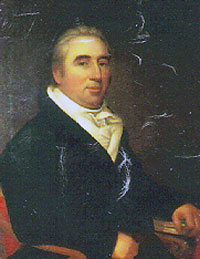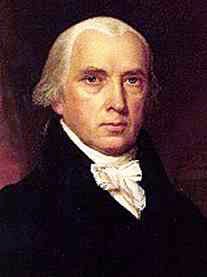Marbury vs. Madison
|
|
|
|
One such case was Marbury vs. Madison in 1803, in which President Thomas Jefferson tried to deny the appointments of Federalist judges. Essentially, before leaving office, President Adams was trying to quickly appoint William Marbury as justice of the peace for the District of Columbia. Such quick installations were common practice before an elected official left office. It was a way of keeping their party in power. However, the incoming president, Thomas Jefferson, directed Secretary of State James Madison not to deliver the official papers to instate Marbury. As a result, Marbury sued Madison in order to win the right to assume the position. Based on the Judiciary Act of 1789, the court had the authority to grant such a ruling. However, Chief Justice Marshall ruled against Marbury, stating that it was unconstitutional for the Supreme Court to grant such an order. Marshall also went as far as to declare part of the Judiciary Act of 1789 unconstitutional.

